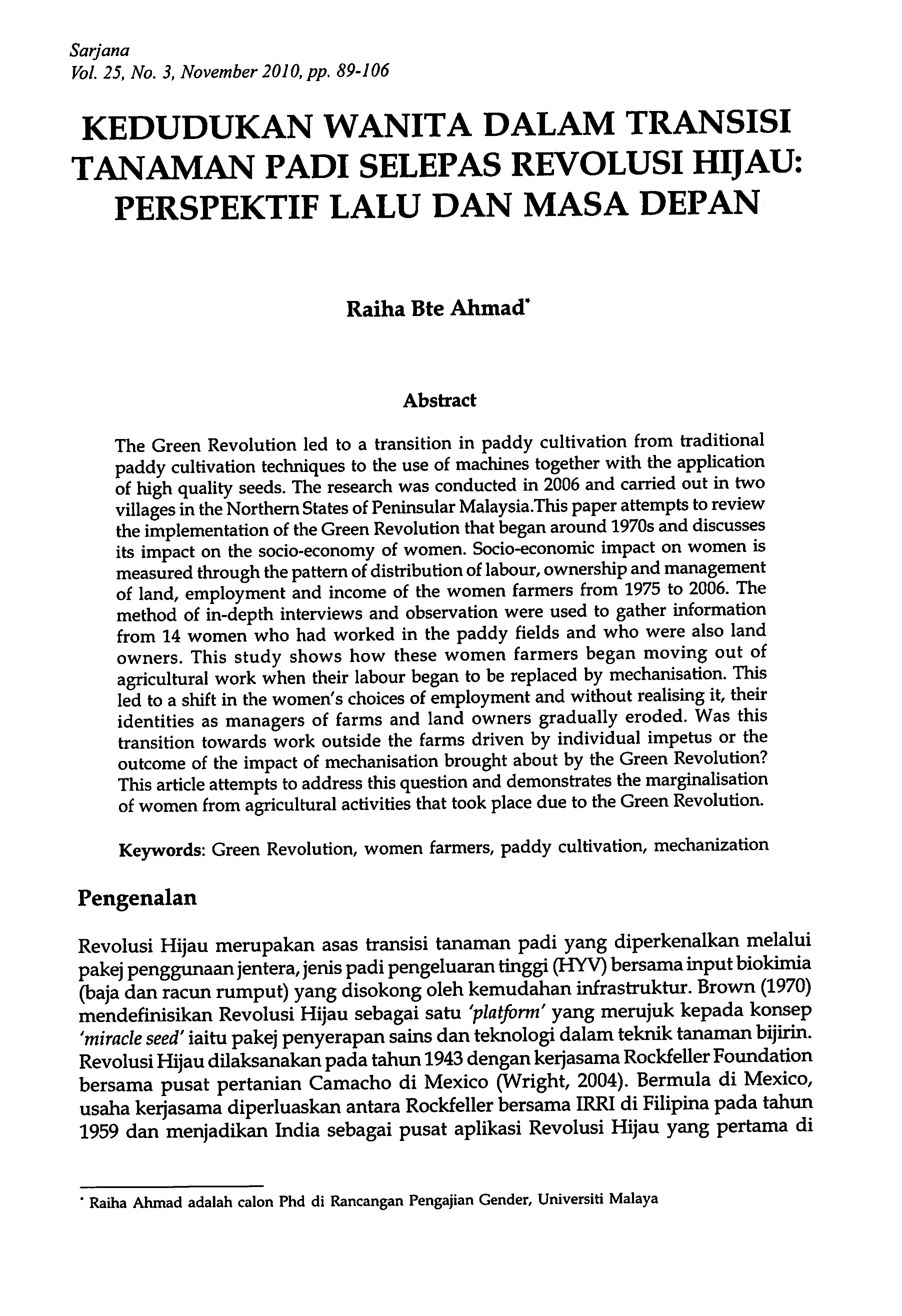KEDUDUKAN WANITA DALAM TRANSISI TANAMAN PADI SELEPAS REVOLUSI HIJAU: PERSPEKTIF LALU DAN MASA DEPAN
Main Article Content
Abstract
The Green Revolution led to a transition in paddy cultivation from traditional paddy cultivation techniques to the use of machines together with the application of high quality seeds. The research was conducted in 2006 and carried out in two villages in the Northern States of Peninsular Malaysia.This paper attempts to review the implementation of the Green Revolution that began around 1970s and discusses its impact on the socio-economy of women. Socio-economic impact on women is measured through the pattern of distribution of labour, ownership and management of land, employment and income of the women farmers from 1975 to 2006. The method of in-depth interviews and observation were used to gather information from 14 women who had worked in the paddy fields and who were also land owners. This study shows how these women farmers began moving out of agricultural work when their labour began to be replaced by mechanisation. This led to a shift in the women's choices of employment and without realising it, their identities as managers of farms and land owners gradually eroded. Was this transition towards work outside the farms driven by individual impetus or the outcome of the impact of mechanisation brought about by the Green Revolution? This article attempts to address this question and demonstrates the marginalisation of women from agricultural activities that took place due to the Green Revolution.

